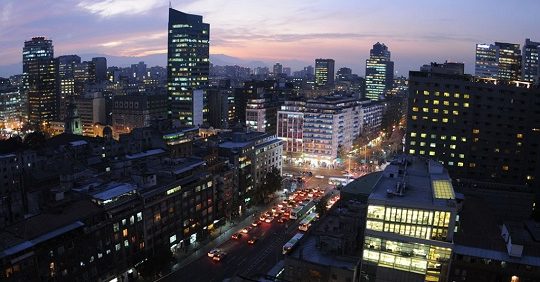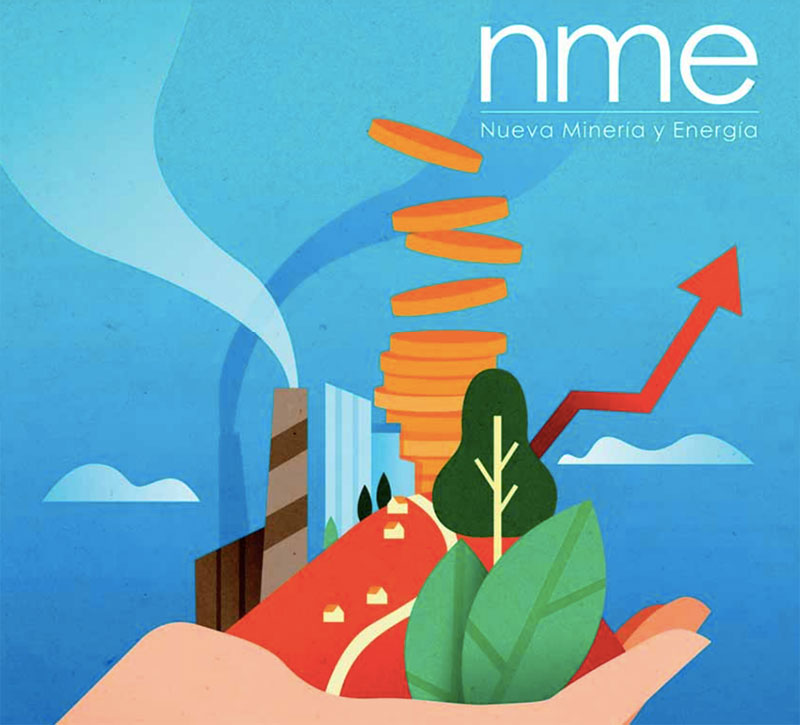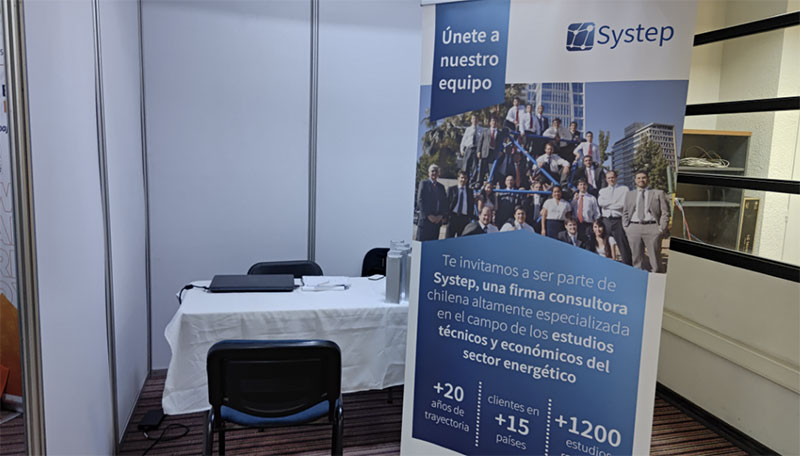
The draft bill to modernize the electricity distribution companies is ready and its details are only known by some government officials. The opening of the energy sales market will become the focus of a discussion that the industry anticipates will be lengthy.
Source: La Tercera/Pulso
The Ministry of Energy’s technical team has had a busy summer. In recent weeks, the portfolio has held meetings of up to three hours with the regulation managers of all the electricity distributors to make progress on what will be the largest bill to be processed by the agency headed by Juan Carlos Jobet and which will modernize a sector that has not changed its regulation for 40 years.
This is the so-called Long Law, a regulation that aims to change the energy distribution market, a segment that has a law whose initial objective was to develop the necessary infrastructure to increase coverage (electrification) and then achieve an improvement in the quality of service. Today, the headline of the new regulation that the government promised to present to Congress in early March and which is already in the signature stage, seeks to generate greater competition. Currently, there are around 38 players competing in this market, most of which are electric cooperatives, but there are four relevant companies: Enel, CGE, Saesa and Chilquinta, firms that despite the hard work they have maintained with Energía, do not know the details contained in the draft bill that during these last weeks has been circulating among some government officials.
At the level of parliamentarians there have been no approaches either. This is because the commitment made with Energía was to analyze the draft in March and begin the discussion that same month, according to a legislative source.
The safeguard is given because the Ley Larga is Jobet’s big bet to improve a market that in his opinion urgently needs to be modernized, according to people close to the portfolio. According to the Energy Minister -according to those attending the meetings where the Universidad Católica engineer has expressed his position-, no industry can be sustainable or successful in the long term if its clients do not value what they do. A clear example of this unease was the fire that affected Enel’s headquarters on Santa Rosa Avenue on October 18, and the fires at most of CGE’s branches throughout the country.
And its importance is also reflected in the time the ministry wishes to take for discussion. The goal is to end the government of Sebastián Piñera with a new distribution law. “We know this law is complex, we will take our time,” says a source linked to the portfolio. This is not a minor issue considering that Jobet’s agenda has been intense in the eight months he has been in office. It processed the electricity stabilization law in four days and approved the Short Law with a large majority. In addition, it managed to design the controversial regulation for small means of generation (PMGD) and sealed an agreement with El Campesino to prevent the so-called “phantom contract” from damaging the electricity system. Now he wants to put an end to a body of law that has been in force for four decades and that other ministers have wanted to reformulate, and have been unsuccessful. In fact, in the previous government, both Máximo Pacheco and Andrés Rebolledo advanced in pre-legislative work related to electricity distribution and left a draft of a potential bill, a document that was discarded by former Minister Susana Jiménez.
Market opening
Today the new body of law would contain some aspects of that draft, according to people familiar with the document that has been kept in a small government circle. The relevant seal that Energy wants to put on this discussion is to end the natural monopoly of distributors in relation to the sale of energy and to open the market to electricity traders, intermediaries that are not necessarily linked to the electricity world and that can offer electricity to end customers. The model is used in countries such as Spain and the United States, where even retail stores can offer energy sales as part of their products.
One of the requirements for opening the market is to know the customer’s consumption profile. For this reason, within the new regulations, it will be proposed to tender the role of an administrator of this information, which would be key to know both the consumption and the payment profile of potential customers and, thus, the new marketers can offer a product tailored to the customer they want to capture. “It is necessary for the administrator of this information to be an independent third party, because it has to ensure that this data remains confidential. It is sensitive information that would only be made available to this entity in cases where clients want other actors to offer them services,” says a person familiar with the bill.
He adds that there has been a lot of discussion on the subject in Energy and it was initially proposed that this role should be fulfilled by the Electricity Coordinator, but the proposal has not prospered given the level of load that this body has today. “The discussion, in any case, is not closed,” says the consulted source.
The opening of this market has raised the private sector’s alarm and will be one of the points that distributors will defend the most in the discussion that will take place in Valparaíso. The industry’s position will be to approve the opening, but will call for the proposal not to contain unrealistic vices. This is due to an element that distributors indicate as a priority: quality of service. An example from an industry executive is what will happen when there is a supply disruption. “Who will the customer turn to, the retail company that offered the energy, but does not manage the networks, or the distributor? Will the retailer also have brigades to respond to emergencies? That is an unresolved issue,” he emphasizes.
Another point that will be on the table will be the risk factor, as the new player will have to have guarantees to ensure supply, in addition to complying with other restrictions aimed at protecting customers, according to sources linked to Energía.
In any case, according to those familiar with the draft bill, this opening of the market will be gradual, which will be made very clear in the bill. “There will be a very gradual transition process towards commercialization, which will be achieved with a reduction of entry barriers to supply, the expansion of demand from the increase of free demand, the education of consumers and the establishment of measures for their protection, based on the competitive conditions observed in the market and monitoring the need to replace long-term signals in the system,” is detailed in one of the technical reports used by the ministry for the design of the new regulations and to which Pulso Domingo had access.
The government’s idea is to respect the contracts that have already been signed, which is relevant as a signal to investors. “We need the sector to keep investing, so this will be an issue that is going to be highlighted in the discussion,” assures an Energy advisor.
But the ministry also wants to take charge of the quality of service and for this it wants to incorporate into the long law, a modernization of the compensation mechanism for customers, a measure that will be different from the project that in parallel is to be discussed, related to a strengthening of the Superintendence of Electricity and Fuel (SEC), a long-standing desire of the sector and that would also enter Congress in March.
Wink to the sector
One point that the industry is waiting to know in detail focuses on the changes that will take place in the “model company”, an essential element for setting the tariff and to which the industry has historically asked for modifications. The current regulation does not recognize real investments in tariffs, as is done in many countries, but rather the investments of a model company, which is more efficient than the real one and which, starting from zero every four years, does not take into account in its construction the historical background that led to the current design of the network.
In the bill, the distributors would maintain their monopoly status in relation to the planning, operation and maintenance of the distribution network. Therefore, “they will be remunerated according to an improved valuation methodology per efficient model company”, the technical report highlights.
The government’s position is to make “some adjustments” to the scheme so that the risks are well reflected, says a person familiar with the bill. One issue that the Executive wants to raise in the discussion is the obsolescence system, so that new investments are recognized in the tariff.
This is not a minor point, since all the investments that the companies have made to improve the networks since the earthquake or due to climatic problems that have affected the electricity supply in recent years have not been recognized and are qualified as “losses” by the companies.
And it is even more relevant because the sector is in the midst of developing a millionaire investment plan – of some US$ 6 billion, a figure similar to all the investment the industry has made in networks since the 1980s – to comply with the technical standard for quality of service that was approved in 2017 and that mainly addresses power supply interruptions and improves the quality of the information these companies deliver to customers.
Teams on the field
The industry knows that the talks with the government will not be easy, especially because the dialogue between the parties suffered after the approval of the Short Law, which lowered the profitability rate of distribution companies and where the sector did not have much room to assert its position, accuses an industry executive.
Therefore, for the design of the Ley Larga, Energía put together a powerful team where, in addition to the experience of Hugh Rudnick, an academic at the Universidad Católica and recognized expert in the sector, the portfolio headed by Jobet also hired the former general manager of CGE, Pablo Guarda. His link with Jobet is a long-standing one. The two met a decade ago, at the time of the 27F earthquake. Guarda, at CGE, and Jobet, at the time chief of staff to then Interior Minister Rodrigo Hinzpeter, coordinated to restore electricity service. “They have worked together. They have things in common: they are both frank and direct,” stresses an Energia source.
The ministry also recruited Gustavo Riveros, who had a long career at Saesa. “It was necessary to have people who knew the companies inside out,” the source says.
The association of distribution companies, meanwhile, is working with Rodrigo Moreno, an academic at the Department of Electrical Engineering of the University of Chile and researcher at ISCI (Instituto Sistemas Complejos de Ingeniería).



